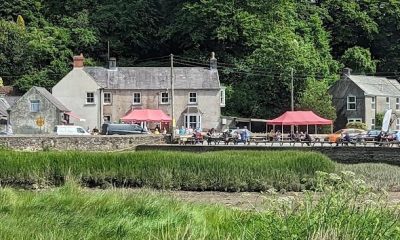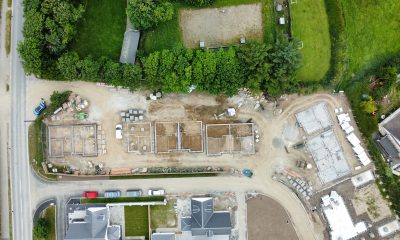Farming
Farmers who knowingly kept cattle with bovine TB on farm fined
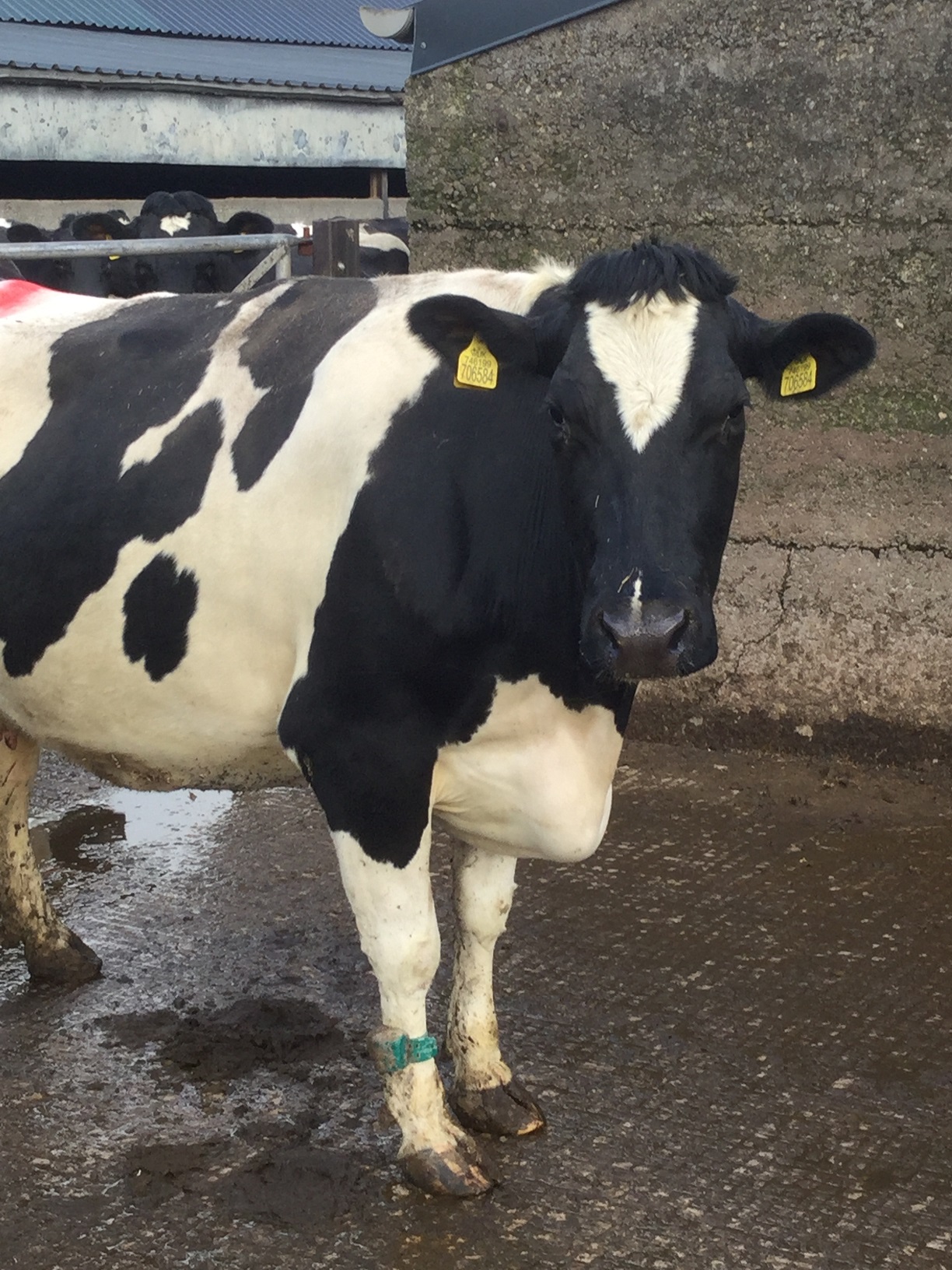
THREE members of a Pembrokeshire farming family have been sentenced for deliberately swapping cattle ear tags; actions that saw animals with Bovine Tuberculosis (TB) reactors remain on the farm.
Bovine Tuberculosis is a zoonotic infection that can infect many species, including humans and wildlife, though transmission to humans in the UK is very rare as a result of control measures in place across the agricultural and food industries.
The actions of Edward, Charles and Henry Hartt displayed widespread illegality and created an unacceptable and serious risk to animal health.
The Hartts operate a large scale dairy and beef farming enterprise – Messrs EW Hartt & Sons – at Longford Farm, Clynderwen, comprising about 2800 cattle.
The three men were sentenced at Swansea Crown Court on Monday, March 4th for offences committed under the Cattle Identification (Wales) Regulations 2007; legislation which underpins cattle management, disease control and traceability systems put in place to ensure the safety of the entire farming industry.
All three defendants had previously pleaded guilty to 12 counts on March 25th, 2022.
The court heard that where higher value cattle had tested positive for TB and would be valued for compensation, poorer quality animals would then be sent for slaughter in its place.
This meant that infected animals were kept on the farm with a significant risk of spreading the disease to other animals and jeopardising the success of the TB eradication programme.
Their retention would undoubtedly allow the disease to persist on farm, slowing the progress of eradication within the herd and the general cattle population and increasing costs to the Welsh Government and taxpayer.
The practice would also have resulted in the slaughter of healthy animals not actually infected with TB.
It was also determined that a portion of farm’s milk would have come from TB reactors that should have been removed, which under food safety legislation was banned from entering the food chain.
Where poorer cattle tested positive, evidence showed that they were substituted at valuation for higher value animals, attracting a higher level of compensation – but with the more valuable animals subsequently retained and the lower value TB reactors sent for slaughter.
Each defendant was fined a total of £24,000 – £2,000 for each count on the indictment.
The sentencing reflected the heightened TB risk of reactors remaining on farm, TB lesions present in cattle and a clear risk that misidentified animals could have entered the food chain.
As well as the significant fine, associated action had been taken against the defendants under the Proceeds of Crime Act 2002 (POCA).
This legislation was introduced with the aim of recovering assets, including money, acquired through criminal activity.
The use of POCA is particularly pertinent when it is so manifestly in the public interest to ensure criminal activity is not rewarded.
The criminal benefit arising in connection with the offending would have been derived through a mix of pathways.
This included TB compensation payments, sale of illegal stock, sale of milk from illegally retained stock, as well as the wider benefits gained by the farming enterprise.
The Hartts’ actions enabled a steady and continual expansion of the business, on a stronger financial footing, to the detriment of other farms in a competitive market.
This resulted in confiscation orders of £217,906 against each defendant jointly and severally to reflect the ‘criminal benefit’ associated with the offending.
The court also awarded the Council costs of £94,569.
The case brought by Pembrokeshire County Council followed an in-depth investigation by officers from the Council’s Public Protection Animal Health and Welfare Team, working in conjunction with the Animal and Plant Health Agency veterinary officers and other regulatory partners.
The investigation was triggered following the identification of anomalies at the farm in June 2019.
The subsequent investigations were complex and protracted over the remainder of the year, involving a number of inspections and visits, DNA sampling of milking cows, detailed audit and cross-referencing of farm records, ear tag and freeze brand (markings on the animal) checks, post-mortems and blood samples.
In one instance remarked upon by the Judge, the freeze brand of a milking cow was altered.
It was later discovered that her ear tags had been changed twice. DNA testing later proved that the animal should have previously left the farm.
Of 828 animals checked as part of the investigation, 123 had discrepancies in relation to their origin and identity, equivalent to 15% of the stock.
The extent and nature of the tagging issues and deliberate changes in identity dwarfed anything previously encountered by officers, and highly unlikely to be by error or mistake.
It was subsequently discovered that the farming operation had received TB compensation payments at a level far above most other farms.
The farm was one of only two in Wales to have had TB present for over 20 years. Since 2009 the farm had received more than £3 million in compensation payments, more than any other farm in Wales.
The prosecution maintained that the large scale illegality underpinned the foundations of the entire farming enterprise over a considerable period of time.
In December 2019, Food Standards Agency veterinary officers placed a stop on 19 carcases and associated offal/edible co-products from two lots of cattle sent for slaughter by the farm, that were destined for the human food chain.
This was due to irregularities concerning the identification and origin of certain animals and potential food chain implications.
Following the conclusion of the court case, Cllr Michelle Bateman, Cabinet Member for Housing Operations and Regulatory Services, welcomed the level of sentence.
She said: “This case will have resulted in unnecessary cost and a drain on resources for those involved in the TB eradication programme, including the major use of public money by Welsh Government who fund the implementation of the compensation scheme.
“It also greatly risks the health of neighbouring herds through unnecessary contamination of the environment as well as damaging the farming industry and public confidence in the safety of milk and meat.
“I congratulate our Council officers and all agencies in bringing this case successfully to court. I hope that this action and sentence will send a message that this sort of illegal behaviour will not be tolerated.”
Farming
Farm building scheme near Lawrenny given go-ahead by planners
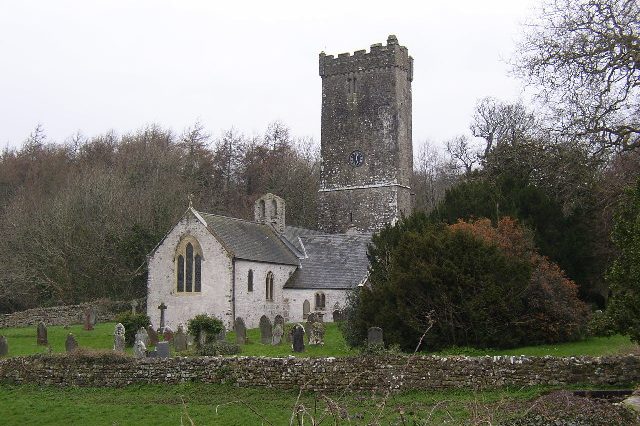
AN APPLICATION for a storage building at a south Pembrokeshire farm, made by a family member of an officer on Pembrokeshire County Council’s planning service, has been given the go-ahead by the authority’s planning committee.
In an application recommended for approval at the July 23 meeting of the authority’s planning committee, Laura Elliot sought permission for the erection of an agricultural storage building at Tedion Farm, a dairy farm near Lawrenny.
The application had been brought to committee, rather than being delegated to planning officers, due to the family connection.
The farm, near to the Pembrokeshire coast National Park border, comprises 270 milking cows and dairy heifer replacements kept on the farm comprising land over 138 hectares. The farm is mainly down to grass and the cows are paddock grazed in order to utilise grass efficiency.
No objections had been received from local community council Martletwy.
A report for members said: “The application seeks consent for the erection of agricultural storage building. The erection of an agricultural building will be used to store stay, hay and farm machinery.
“The building would be located within the existing farm complex, to the north-east of the site, adjacent to the main farm dwelling. The building will measure 18 metres in length by 13.6 metres in width, with a pitched roof height of 5.71 metres.”
Approval was moved by Cllr Alistair Cameron, seconded by Cllr Brian Hall.
Farming
Fears dairy farm near Kilgetty could increase to 3,000 cattle
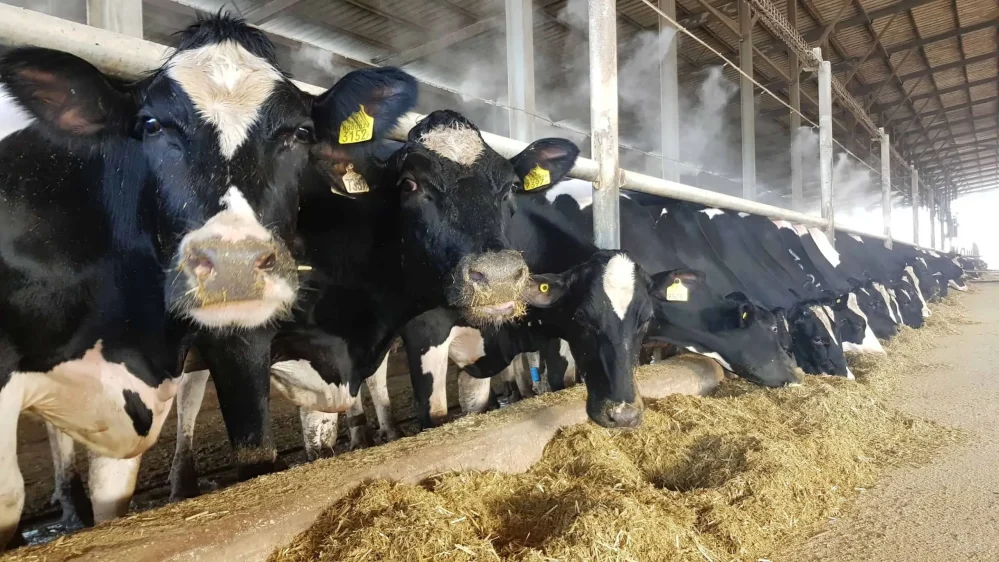
PEMBROKESHIRE planners are to visit the site of one of the county’s largest dairy farms after claims were raised a scheme for new calf buildings could lead to animal welfare issues and an increase in the size of the herd to 3,000 cattle.
At the July 23 meeting of the council’s planning committee, an application by Hugh James of Langdon Mill Farms Ltd for a calf building, weaned calf building, and associated yard areas, at Langdon Mill Farm, near Jeffreyston, Kilgetty was recommended for conditional approval.
Local community council Jeffreyston has raised concerns, made by a member of the public, on potential increased noise and odour from the scheme, planners heard.
A supporting statement, through agent Reading Agricultural Consultants, said: “The holding currently has a milking herd of approximately 2,000 cows, which are housed indoors for the majority of the year, with dry cows [cows that are not lactating, prior to calving] and heifers grazed outdoors when weather and soil conditions permit.
“There has been significant investment in buildings and infrastructure at the farm over the last decade in respect of cattle accommodation, slurry storage, milking facilities, Anaerobic Digestion (AD) plant and feed storage. The unit is efficient, achieving yields of more than 10,000 litres/cow/year, with cows being milked three times/day in the 60-point rotary parlour.”
Currently, calves are reared at Langdon Mill Farm for two months before being transported off-site to be reared at a number of third-party farms in the area before being return later; the proposed 61.2m long calf building is required to accommodate young-stock, following separation from the cows, to two-months, with the 164.8m weaned calf building to be used for calves from two months to seven months.
The application says the proposals would “clearly make the enterprise more financially robust by reducing reliance on third party farms”.
However, concerns were raised at the committee meeting by objector Ian Dennis, a former vet of some four decades’ experience, who described Langdon as occupying 3,000 acres of land with 2,000 cattle currently that “are never allowed to graze,” the proposal, he said, would add another 1,000 cattle to the site.
“This is factory farming, an intensive livestock unit, no longer a farm.”
He told planners a “mendacious and incorrect” ammonia emission report submitted by the applicants was “designed to bamboozle,” saying, despite his experience and scientific background, he needed expert support to assess.
He said only average figures were reported, rather than peaks and troughs, adding the “fictitious anaerobic digestion plant” had yet to be built, with planning permission now lapsed.
However, officers told members the applicant’s agent had said works on the digestor had actually started.
On the issue of animal welfare, Mr Dennis said he had “very huge concerns” about the scale of the development, differing from a planning officer report saying the scheme would bring animal welfare benefits.
A suggestion by committee chair Cllr Simon Hancock the application be deferred pending a site visit was unanimously backed by committee members present.
Farming
Family pay tribute to farmer, 65, who died in quadbike accident
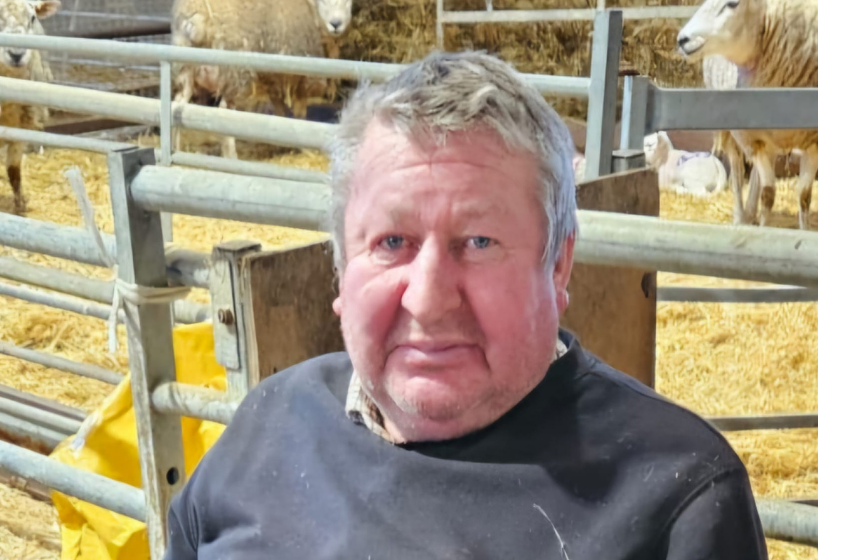
A WEST WALES farmer has died after an incident involving a quadbike.
Dyfed-Powys Police have confirmed they attended a report of an incident involving an agricultural quadbike in a field in the Llanilar area of Aberystwyth on July 17.
The force has confirmed that a 65-year-old man died at the scene.
They said that his next of kin have been advised and are being supported by specialist officers. The HM Coroner and Health and Safety Executives have been informed.
His family have paid tribute to him. The family said: “Hugh Tudor was a 65 year old farmer who had farmed at Tynberllan, Llanilar with his wife Ann for over 40 years. He was a devoted father to Sara, Lowri and the late Gwenno.
“Hugh was the son of the late Tom and Sybil Tudor of Glanystwyth and brother to Richard.
“Farming was his life, but he also had a wide range of interests and was actively involved in all aspects of the local community in Llanilar and beyond.
“We would like to thank everybody for their support and kindness during this difficult time.”
-

 Education5 days ago
Education5 days agoMilford Tesco worker achieves Oxford dream and lands top legal job
-

 Crime4 days ago
Crime4 days agoHaverfordwest man admits having nearly 1000 child and animal images
-

 Crime4 days ago
Crime4 days agoYouth set to appear in court over serious sexual offences
-

 Crime4 days ago
Crime4 days agoPolice investigating after man injured during altercation in cemetery
-

 Education4 days ago
Education4 days agoPupils delight in ice cream treat from Pembrokeshire’s number one van
-

 Crime4 days ago
Crime4 days agoTown centre ‘stinking of skunk’ as police strip cannabis farm
-

 Crime3 days ago
Crime3 days agoFag-butt police court summonses spark debate in Pembrokeshire
-

 News6 days ago
News6 days agoProposal to give firefighters a council tax discount to go to Cabinet






